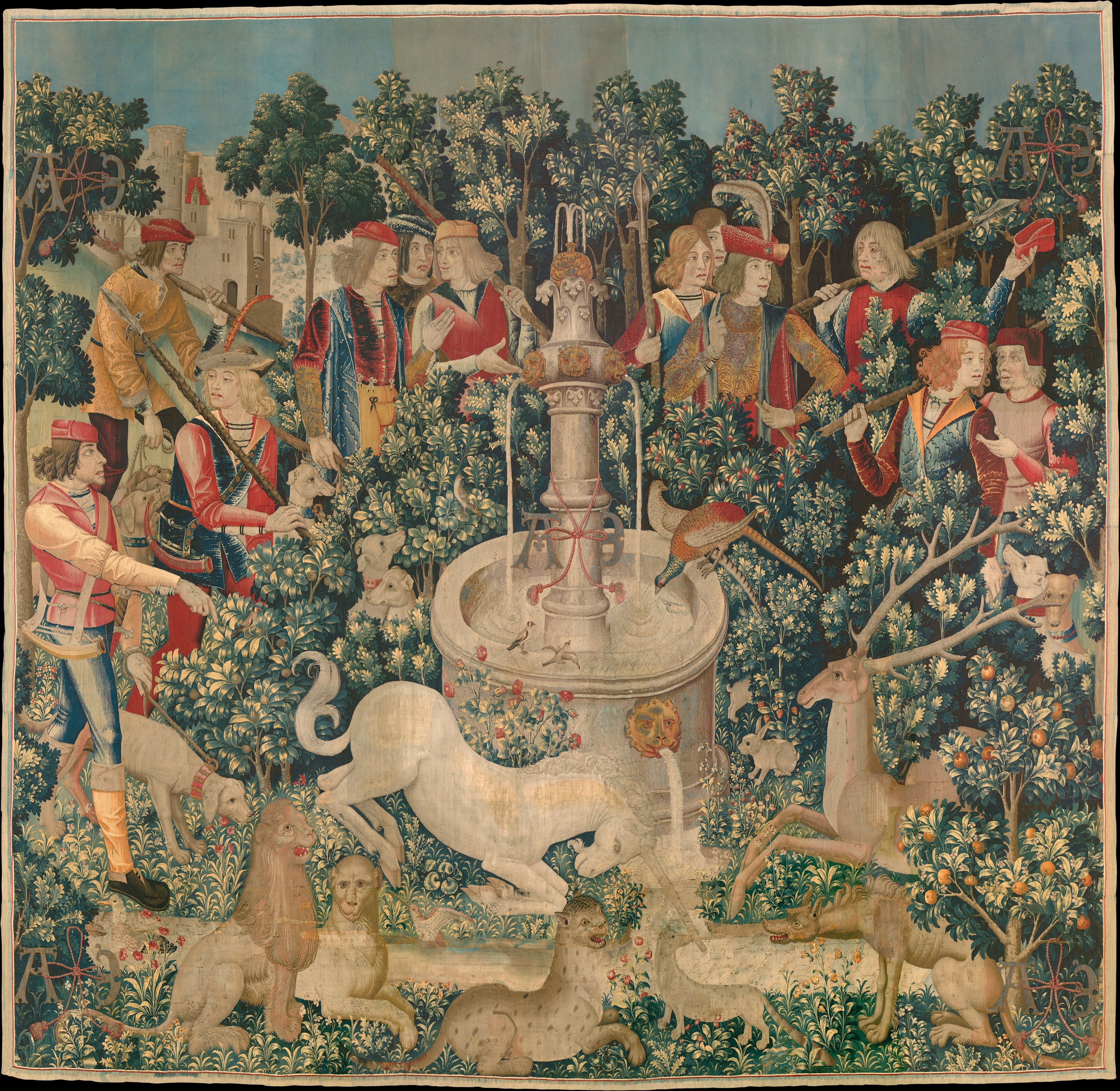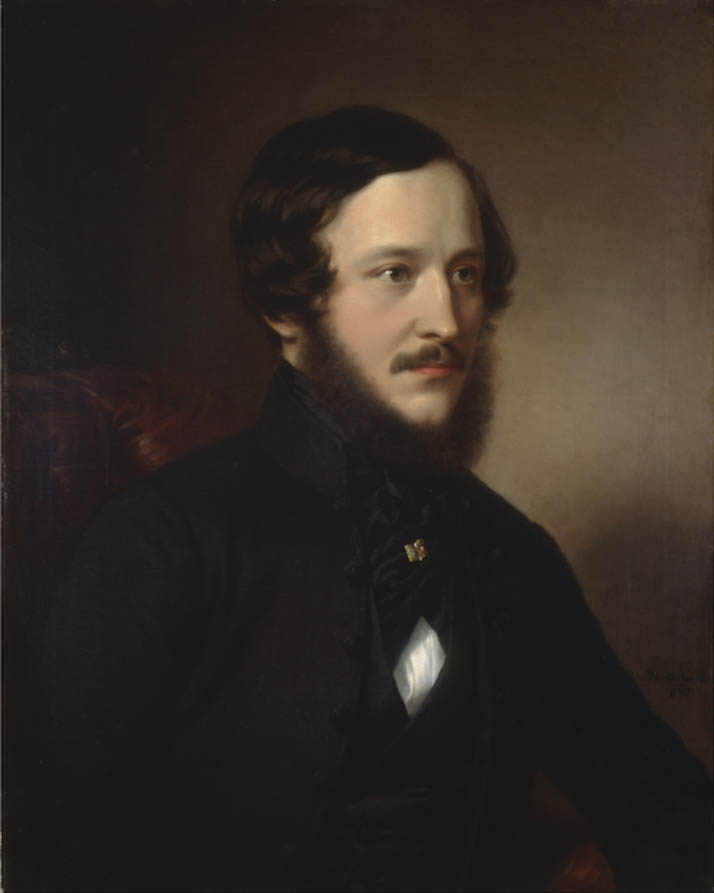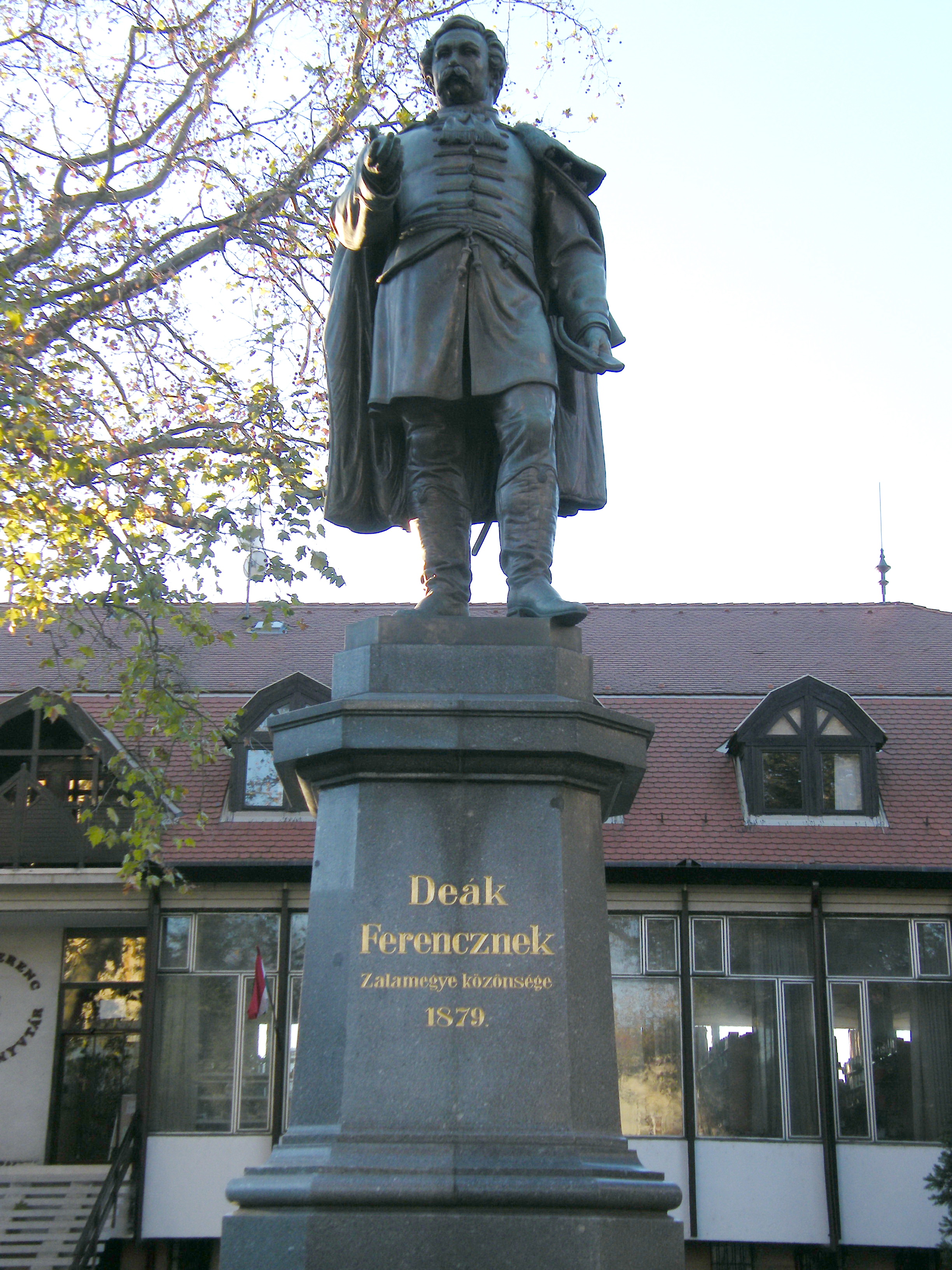|
Primate's Palace
The Primate's Palace ( sk, Primaciálny palác) is a neoclassical palace in the Old Town of Bratislava the capital of Slovakia. It was built from 1778 to 1781 for Archbishop József Batthyány, after the design of architect Melchior Hefele. In 1805, the Palace's Hall of Mirrors saw the signing of the fourth Peace of Pressburg, ending the War of the Third Coalition. Today, it serves as the seat of Mayor of Bratislava. History The palace and its most famous chamber, the Hall of Mirrors, were the location of the signing of the fourth Peace of Pressburg by Johann I Josef, Prince of Liechtenstein, Ignácz Gyulay and Charles Maurice de Talleyrand in 1805 after the Battle of Austerlitz, which effectively ended the War of the Third Coalition. As a result of the Peace of Pressburg, the Holy Roman Empire was dissolved, and Emperor Francis II proclaimed himself Emperor Francis I of Austria; this is commemorated today by a Roman-style bust of the Emperor on the staircase next to th ... [...More Info...] [...Related Items...] OR: [Wikipedia] [Google] [Baidu] |
Palace
A palace is a grand residence, especially a royal residence, or the home of a head of state or some other high-ranking dignitary, such as a bishop or archbishop. The word is derived from the Latin name palātium, for Palatine Hill in Rome which housed the Imperial residences. Most European languages have a version of the term (''palais'', ''palazzo'', ''palacio'', etc.), and many use it for a wider range of buildings than English. In many parts of Europe, the equivalent term is also applied to large private houses in cities, especially of the aristocracy; often the term for a large country house is different. Many historic palaces are now put to other uses such as parliaments, museums, hotels, or office buildings. The word is also sometimes used to describe a lavishly ornate building used for public entertainment or exhibitions such as a movie palace. A palace is distinguished from a castle while the latter clearly is fortified or has the style of a fortification, whereas a pa ... [...More Info...] [...Related Items...] OR: [Wikipedia] [Google] [Baidu] |
István Széchenyi
Count István Széchenyi de Sárvár-Felsővidék ( hu, sárvár-felsővidéki gróf Széchenyi István, ; archaically English: Stephen Széchenyi; 21 September 1791 – 8 April 1860) was a Hungarian politician, political theorist, and writer. Widely considered one of the greatest statesmen in his nation's history, within Hungary he is still known to many as "the Greatest Hungarian". Family and early life Széchenyi was born in Vienna to Count Ferenc Széchényi and Countess Juliána Festetics de Tolna; he was the youngest of their two daughters and three sons. The Széchenyis were an old and influential noble family of Hungary. Traditionally loyal to the House of Habsburg, they were linked with noble families, such as the Liechtenstein, the House of Esterházy and the House of Lobkowicz. István Széchenyi's father was an enlightened aristocrat who founded the Hungarian National Museum and the Hungarian National Library. The boy spent his childhood both in Vienna an ... [...More Info...] [...Related Items...] OR: [Wikipedia] [Google] [Baidu] |
Hero And Leander
Hero and Leander is the Greek myth relating the story of Hero ( grc, Ἡρώ, ''Hērṓ''; ), a priestess of Aphrodite ( Venus in Roman mythology) who dwelt in a tower in Sestos on the European side of the Hellespont, and Leander ( grc, Λέανδρος, ''Léandros''), a young man from Abydos on the opposite side of the strait. Leander fell in love with Hero and would swim every night across the Hellespont to spend time with her. Hero would light a lamp at the top of her tower to guide his way. Succumbing to Leander's soft words and to his argument that Aphrodite, as the goddess of love and sex, would scorn the worship of a virgin, Hero succumbed to his charms and they made love. Their secret love affair lasted through a warm summer. They had agreed to part during winter and resume in the spring due to the nature of the waters. One stormy winter night, Leander saw the torch at the top of Hero's tower. The strong winter wind blew out Hero's light and Leander lost his way and ... [...More Info...] [...Related Items...] OR: [Wikipedia] [Google] [Baidu] |
Tapestry
Tapestry is a form of textile art, traditionally woven by hand on a loom. Tapestry is weft-faced weaving, in which all the warp threads are hidden in the completed work, unlike most woven textiles, where both the warp and the weft threads may be visible. In tapestry weaving, weft yarns are typically discontinuous; the artisan interlaces each coloured weft back and forth in its own small pattern area. It is a plain weft-faced weave having weft threads of different colours worked over portions of the warp to form the design. Tapestry is relatively fragile, and difficult to make, so most historical pieces are intended to hang vertically on a wall (or sometimes in tents), or sometimes horizontally over a piece of furniture such as a table or bed. Some periods made smaller pieces, often long and narrow and used as borders for other textiles. European tapestries are normally made to be seen only from one side, and often have a plain lining added on the back. However, other tradit ... [...More Info...] [...Related Items...] OR: [Wikipedia] [Google] [Baidu] |
Gábor Klauzál
Gábor Klauzál de Szlavovicz (18 November 1804 – 3 August 1866) was a Hungarian politician, who served as Minister of Agriculture, Industry and Trade during the Hungarian Revolution of 1848 in the first government of Hungary. He studied in Szeged. He was a member of the National Assembly of Hungary from 1832 and served as one of the leaders of the liberal opposition on the Diet of 1843–44. He retired from politics in 1844 until the outbreak of the revolution. As a minister he represented negotiating, moderate politics, he opposed the extreme politics which wanted to separate from the Austrian Empire, so Klauzál did not support the complete independence. He stuck out for calling to account of Count Franz Philipp von Lamberg Count Franz Philipp von Lamberg ( hu, Lamberg Ferenc Fülöp ''gróf'', 30 November 179128 September 1848) was an Austrian soldier and statesman, who held the military rank of field marshal (German: ''Feldmarschallleutnant''). He had a short but ... [...More Info...] [...Related Items...] OR: [Wikipedia] [Google] [Baidu] |
József Eötvös
József baron Eötvös de Vásárosnamény (pronunciation: jɔ:ʒef 'øtvøʃ dɛ 'va:ʃa:rɔʃnɒme:ɲ 3 September 1813 – 2 February 1871) was a Hungarian writer and statesman, the son of Ignác baron Eötvös de Vásárosnamény and Anna von Lilien, who stemmed from an Erbsälzer family of Werl in Germany. Eötvös name is sometimes anglicised as Joseph von Eotvos. Biography The Baron József Eötvös de Vásárosnamény was born in the Hungarian aristocratic family Eötvös de Vásárosnamény. His father was the Baron Ignác Eötvös de Vásárosnamény (1786–1851), lord of the bedchamber, vice-chancellor of the Kingdom of Hungary, and his mother was the Baroness Anne von der Lilien (1786–1858). He received an excellent education and also spent many years in western Europe, assimilating the new ideas both literary and political, and making the acquaintance of the leaders of the Romantic school. On his return to Hungary he wrote his first political work, ''Pr ... [...More Info...] [...Related Items...] OR: [Wikipedia] [Google] [Baidu] |
Lázár Mészáros
General Lázár Mészáros ''(English: Lazarus Mészáros)'' (20 February 1796 in Baja – 16 November 1858 in Eywood), was the Minister of War during the 1848 Hungarian Revolution. Biography He was born into a noble family of landowners. His parents died when he was four; as a child he was moved from one relative to another. He had his schooling in Baja, Szabadka (today Subotica), Pest and Pécs. Mészáros dropped out of his studies of law and joined the military. Military career In 1813, he became Lieutenant in a cavalry regiment in Bács-Bodrog County. He took part in the war against Napoleon. He was an officer of the 7th regiment of hussars from 1816 to 1837; then he was put in charge of the 5th regiment of hussars. He spent 18 years in Italy with his regiment. Field marshal Radetzky discovered the talented hussar officer, and, based on Radetzky's suggestion, he was promoted to be a colonel (1845). He also became his regiment's commandant. Lázár Mészáros was a hi ... [...More Info...] [...Related Items...] OR: [Wikipedia] [Google] [Baidu] |
Paul III Anton, Prince Esterházy
Prince Pál Antal Esterházy de Galántha (German: ''Paul Anton Esterházy von Galantha''; 11 March 178621 May 1866) was a Hungarian prince, a member of the famous Esterházy family. He was the son of Prince Nikolaus II and succeeded his father on the latter's death in 1833. The basis of his wealth For several generations, the Esterházy family had been exceedingly wealthy. The wealth came from their extensive landholdings, mostly in Hungary. In 1848 the American author John Stevens Cabot Abbott wrote the following of him: n Hungary,the feudal system still exists in all its ancient barbaric splendor. Prince Esterhazy, a Hungarian baron, is probably the richest man, who is not seated on a throne, in the world. He lives in the highest style of earthly grandeur. One of his four magnificent palaces contains three hundred and sixty rooms for guests, and a theater. His estates embrace one hundred and thirty villages, forty towns, and thirty-four castles. By the old feudal law, ... [...More Info...] [...Related Items...] OR: [Wikipedia] [Google] [Baidu] |
Ferenc Deák (politician)
Ferenc Deák de Kehida (archaically English: Francis Deak, hr, Franjo Deák; 17 October 180328 January 1876) was a Hungarian statesman and Minister of Justice. He was known as "The Wise Man of the Nation" and one of the greatest figures of Hungary's liberal movement. He was an instrumental contributor to a number of major events in Hungarian history, including passing and support of the April laws, the Austro-Hungarian Compromise of 1867 and the Hungarian Nationalities Law (1868). While generally supporting reformist policies, he was well recognized for finding and negotiating reasonable middle ground compromises between various extremist political factions throughout his career. Early life and law career Born in Söjtör in the county of Zala, in southwestern Hungary, Deák belonged to an ancient noble family. His father was Ferenc Deák de Kehida (1761–1808), jurist, landowner, chief magistrate of the district (''főszolgabíró'') of Kapornak. His mother was the noble la ... [...More Info...] [...Related Items...] OR: [Wikipedia] [Google] [Baidu] |
Bertalan Szemere
Bertalan Szemere (27 August 1812 – 18 January 1869) was a Hungarian poet and nationalist who became the third Prime Minister of Hungary during the short period of the Hungarian Revolution of 1848 when Hungary was independent of rule by the Austrian Empire. Early years Szemere was born in Vatta into a poor noble family. His father was Major László Szemere, his mother was Erzsébet Karove. Szemere studied in Miskolc, Késmárk and Sárospatak. He was interested in writing poems and his works were published in the periodical ("Upper-Hungarian Minerva"). He was influenced by Ferenc Kölcsey and Mihály Vörösmarty. In the reform era In 1832 Szemere graduated as a jurist and started to work as an apprentice in Pressburg (now Bratislava, Slovakia) and became a member of the Parliamentary Young Members' Group and advocated liberal principles. After he finished his pupillage, Szemere went back to Borsod where he was elected as an honorary notary public. In 1835 Szemere ... [...More Info...] [...Related Items...] OR: [Wikipedia] [Google] [Baidu] |
Lajos Kossuth
Lajos Kossuth de Udvard et Kossuthfalva (, hu, udvardi és kossuthfalvi Kossuth Lajos, sk, Ľudovít Košút, anglicised as Louis Kossuth; 19 September 1802 – 20 March 1894) was a Hungarian nobleman, lawyer, journalist, politician, statesman and governor-president of the Kingdom of Hungary during the revolution of 1848–1849. With the help of his talent in oratory in political debates and public speeches, Kossuth emerged from a poor gentry family into regent-president of the Kingdom of Hungary. As the influential contemporary American journalist Horace Greeley said of Kossuth: "Among the orators, patriots, statesmen, exiles, he has, living or dead, no superior." Kossuth's powerful English and American speeches so impressed and touched the famous contemporary American orator Daniel Webster, that he wrote a book about Kossuth's life. He was widely honoured during his lifetime, including in Great Britain and the United States, as a freedom fighter and bellwet ... [...More Info...] [...Related Items...] OR: [Wikipedia] [Google] [Baidu] |
Lajos Batthyány
Count Lajos Batthyány de Németújvár (; hu, gróf németújvári Batthyány Lajos; 10 February 1807 – 6 October 1849) was the first Prime Minister of Hungary. He was born in Pozsony (modern-day Bratislava) on 10 February 1807, and was executed by firing squad in Pest on 6 October 1849, the same day as the 13 Martyrs of Arad. Career His father was Count József Sándor Batthyány von Német-Újvár (1777–1812), his mother Borbála Skerlecz de Lomnicza (1779-1834). He had an elder sister, Countess Amalia von Jenison von Walworth, later also Countess von Westerholt-Gysenberg (1805-1866). At an early age, he moved to Vienna with his mother and his brother after his parents' divorce. Batthyány had a private tutor, but his mother sent him to a boarding school and Batthyány rarely saw his mother again. Early years At the age of 16 Batthyány finished his studies at boarding school and attended the Academy in Zagreb (now University of Zagreb, Croatia). In 1826 he too ... [...More Info...] [...Related Items...] OR: [Wikipedia] [Google] [Baidu] |





.jpg)

.jpg)
